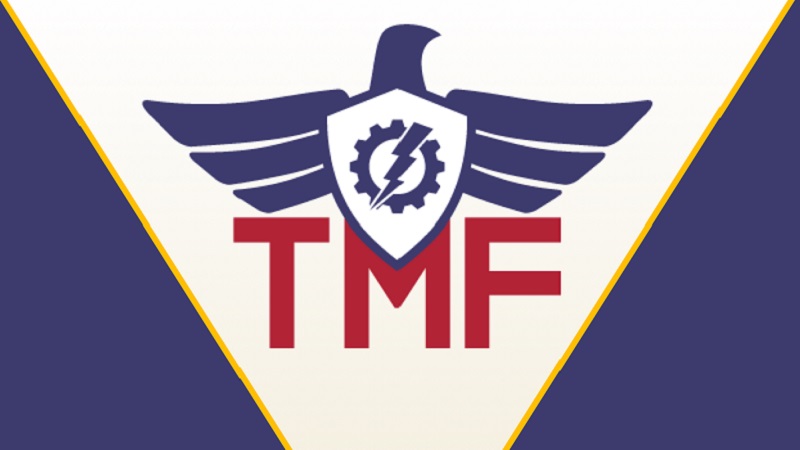
The General Services Administration’s (GSA) Technology Modernization Fund (TMF) announced three new funding awards today totaling $31 million to three Federal agencies, and the agency said that TMF is on track to soon exhaust the $1 billion of funding provided to it by Congress under the 2021 American Rescue Plan Act.
On the big-picture funding front, GSA said today that “TMF is on track to soon award all of its American Rescue Plan funding.”
“GSA is committed to the TMF’s long-term success as a proven model for driving effective, impactful, and cost-effective IT modernization governmentwide,” GSA Administrator Robin Carnahan emphasized today in the new funding awards announcement.
“It is essential that Congress provide resources to allow the TMF to continue to meet the growing demand for investments which address constantly evolving technology needs, threats, and advancements so that government can deliver better for the American people,” she said.
It’s unclear exactly how much money TMF has left to award after the fundings announced today. Also unclear is the amount of repayments that will be coming to the fund over time from agencies who have received awards – some of them under relaxed repayment standards that were instituted during the coronavirus pandemic.
TMF was originally conceived by Congress in 2017 under the Modernizing Government Technology Act as a way to provide money to Federal civilian agencies to undertake tech modernization projects, but also as a largely self-sustaining fund that would be replenished with money paid back to TMF by agencies from cost savings generated by the modernization projects that TMF helped to underwrite.
Carnahan said in May that the TMF had invested nearly $1 billion into 53 projects across 30 agencies.
While TMF received the big $1 billion infusion in 2021, it also received several hundred million before that through regular appropriations from Congress.
In more recent years, however, the fund has received less annual financial support from Congress. House appropriators earlier this month proposed no new funding for TMF for fiscal year 2025, and dropped any mention of the program from their version of the Financial Services and General Government (FSGG) appropriations bill.
The Biden administration’s FY2025 budget request unveiled earlier this year proposes $75 million of funding for TMF.
New Funding Awards
Of the $31 million in new TMF funding awards announced today, the lion’s share – $17 million – is heading to the Department of Energy (DoE) to improve the agency’s human resources tech systems.
“With $17 million in TMF funding, DoE aims to transition to a Software as a Service platform, integrating multiple HR systems into one cohesive solution,” GSA said today. “This effort aims to better support DoE managers, HR practitioners, system administrators, general employees, and contractors – nearly 40,000 in all. The goal is for users to experience easier access to the modernized HR system, improved data integrity, and reduced time and effort to manage HR functions. DoE also anticipates the streamlined operations and automation processes will drive cost savings.”
“This project will have a profound impact on how our employees and managers use these systems, which are fundamental to work accomplishment and employee engagement,” said DoE Deputy Secretary David Turk. “Further, our step into the world of Software-as-a-Service will mean that DoE’s human capital solutions are future-proofed and will keep pace with global standards.”
With a new TMF award totaling $8.8 million, the Federal Election Commission (FEC) will work to upgrade its FECFile legacy software that now operates only on Windows-based personal computers and is not compatible with other operating systems.
“With $8.8 million, FEC aims to modernize FECFile Online – a cloud-based, web-accessible, intuitive software for filers that improves data quality and enhances security,” GSA said today. “Beyond fulfilling FEC’s statutory mandate to provide free filing software, this project is driven by the filing community’s needs for usable software, and serves the public interest in ensuring data quality and availability for public disclosure. Additionally, this project aims to create an open-source product for vendors and state agencies to use in their own development efforts.”
“With the Technology Modernization Fund’s critical investment to replace outdated reporting software, the FEC can continue to fulfill its disclosure mission for the American public,” said FEC Chairman Sean Cooksey and Commissioner Dara Lindenbaum.
Finally, the Interior Department’s Bureau of Indian Education (BIE) will use a new $5.8 million TMF award to improve services for Tribal communities by modernizing school websites.
“This investment is vital to bridge the digital divide between BIE schools and other educational institutions, allowing for better dissemination of information about school activities and resources,” GSA said. “With this investment, 55 bureau-operated schools and up to 128 Tribally controlled schools aim to have websites compliant with Section 508 accessibility standards and U.S. Web Design System standards providing users with a more consistent, accessible, and trustworthy experience.”
“Upgrading our digital infrastructure will allow our schools to enhance communication and access to essential education and related support services while promoting educational equity,” commented BIE Director Tony Dearman. “Ensuring BIE schools have support to advance their communications capabilities in a secure online environment allows equal access to critical educational resources, eliminating a significant barrier to participation for students and families in our Tribal communities.”
Commenting on all three awards, TMF Acting Executive Director Larry Bafundo said, “Technology is a powerful tool, and these investments underscore how the TMF is capitalizing on emerging technology and our expertise to help agencies deliver simple, seamless, and secure digital experiences for all.”
“These investments demonstrate a commitment to using technology as a force for positive change – increasing government transparency, improving access to human resources data, and creating more equitable opportunities for underserved communities,” said Federal CIO Clare Martorana, who chairs the TMF Board.
